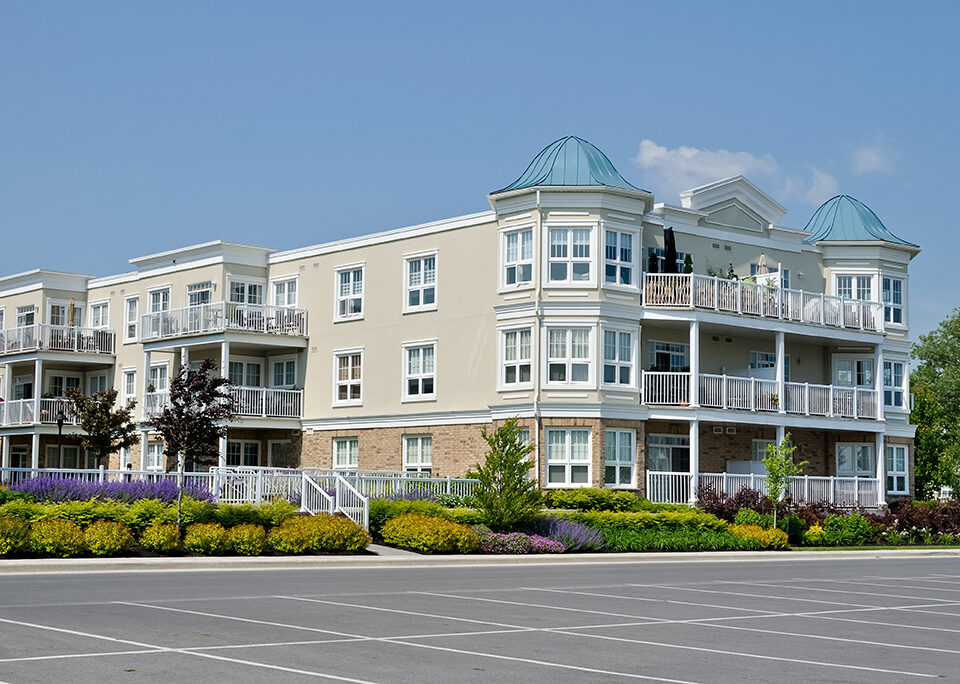Elder Care Planning: Preparing For Alzheimer’s and Dementia Care

Retirement Home Search: It’s Not as Daunting as It Seems
February 26, 2025
Signs That It May Be Time to Move Into a Senior Living Community
June 26, 2025To best prepare for dementia care and dementia related diseases such as Alzheimer’s, attention should be paid to financial, legal, and healthcare aspects as part of proactive elder care planning. A plan should be formulated that addresses potential needs and necessary resources. It should also prioritize the individual’s well-being and preferences.
The following will discuss elder care planning (also called Advanced Care Planning) and, more specifically, preparing for memory care. While the subject matter may be difficult, preparing the proper care is integral. Our goal is to handle each topic with care while being informative throughout.
Elder Care Planning
Elder care planning can help the individual, their family and their caregiver(s) know what to expect and prepare accordingly. At this point, it would be beneficial for all involved to have a substitute decision-maker named.
This person will speak for the party when they may become incapable of doing so themselves. Accordingly, this person should be trusted to ensure healthcare wishes, forms of care, and other important life decisions are handled correctly.
A General Power of Attorney
A general power of attorney is a legal document that can give the attorney authority over all (or some) of the finances and property. This means they can manage these matters on behalf of the person in question while they are still mentally capable of managing the affairs on their own.
A general power of attorney can also be “specific” or “limited”. This gives them the authority for a limited task or a specific period. For example, selling a house. The power of attorney can go into effect immediately once the documents are signed, or it can start on a specific date written in the document.
A Protection Mandate
It is a common mistake to think that a Protection Mandate is the same as a General Power of Attorney. Not at all. In fact, when setting up a General POA, you should also set up a Protection Mandate. This is an official document that allows a mandator to make decisions on your behalf due to temporary or permanent incapacity. The Protection Mandate must be homologated (i.e., an approval process through the court of law requiring a medical assessment and a psychosocial assessment) for it to become effective. In most cases, you cannot sell property such as your home if you are considered inept. Therefore, a homologated protection mandate becomes necessary for the sales transaction to occur.
It is important to note that some of the laws, regulations, and resources available will vary depending on location. If searching for resources both in and outside of Quebec, Advance Care Planning Canada offers many useful resources specifically for the province or territory in which you reside.
We recommend speaking to a Lianas professional to get started on the right foot to simplify the process. They offer a Senior Guide E-book checklist and many other resources to create the best care plans for the elderly.
Making An Elder Care Plan
When making an elder care plan, think about what is most important. Consider the possible situations that may arise over time. For example, the need for different medical procedures and if they would or would not be agreed to.
Select a substitute decision-maker; this person must be willing and able to speak for you if you can’t speak for yourself. This is why talking about your wishes with those closest to you and recording them for future reference is important. We urge you to have a legal document drawn up or, at the very least, have your wishes written down. However, we understand that in some scenarios, this isn’t possible. In this case, verbal wishes can be equally valid.
There are many resources available to help along the way. For example, Lianas Senior Advisors can assist in navigating the care journey by providing a personalized written action plan to meet your existing and future needs. The Alzheimer’s Society can also help ascertain whether specific provinces/territories have legal documents regarding planning future healthcare.
What Should Be Discussed?
Throughout these discussions, focus must be placed on how you wish to be cared for later on. This makes the process easier for caregivers. It will also provide you and your loved ones with comfort knowing everything will be followed according to your wishes.
Understanding the progression of dementia and dementia-related diseases such as Alzheimer’s is fundamental from the very beginning. This will help prepare for what is typically needed as the disease advances. Throughout these conversations, some questions that may be part of the discussion include the use of medical interventions and special wishes.
Medical Decisions and End-of-Life Care
While this isn’t the most uplifting topic to discuss, it is an important conversation to have, especially since having the discussion now allows you to participate in the conversation as much as possible.
Everyone has the right to get information and the necessary support. Therefore, we encourage discussing possible medical decisions and end-of-life care openly and honestly with those who will play a role. Everyone must be on the same page to limit even more stressful discussions at an already emotional time.
Living Arrangements
Depending on the timeline of when the diagnosis was made, the need for care and the level of care needed will vary. Many strive to have home care for as long as possible. Aging in place has been made easier thanks to home care services such as Premier Home Care. However, as time passes and the disease progresses, it is important to have a plan already in place. Activities such as cooking, shopping, housekeeping, and transportation will require more help.
Family and friends may be able to help with these tasks. However, it is best not to rely solely on loved ones. Thankfully, there are many resources available that can also help. When living independently is a safe option, it is best to make use of the local community and social services that are available. Many programs offer adult day programs, volunteer visits, and other support services.
Home Safety
If the plan is to reside at home for as long as possible, it’s necessary to make the environment as safe as possible. This is especially important to properly accommodate potential mobility challenges. Grab bars, railings, and ramps should be installed when possible, and all tripping hazards should be removed.
Using simple assistive technology will also act as a safeguard in case of emergencies. For example, fall detection devices, video monitoring systems, and medication reminders can all be helpful.
An emergency plan should also be developed in case of an emergency such as a fall. Emergency contact information and phone numbers of local services and family members should be kept in an easy-to-access spot. The Lianas Emergency Planner is an excellent tool to keep important information in one document.
Assisted- Living or Other Long-Term Care Options
Assisted-Living Homes or Retirement and Long-Term Care Homes should not be overlooked. At some point, individuals with dementia will likely require around-the-clock care. Or they may exhibit behaviors that make it no longer safe to stay at home, such as aggression and wandering. The option to age at home is, unfortunately, not always feasible.
Long-term care solutions can be provided at an appropriate senior living community specializing in memory care. Those who require help full-time can move to an assisted living or long-term care residence that provides all the services they require. It is best to have this planned as far in advance as possible; many facilities have long waiting lists.
Points To Consider
When planning for long-term care, there are many factors to consider. For example,
- What form of residence can provide a safe environment that best supports their needs?
- Is there an Alzheimer’s/Dementia-specific unit that offers specialized care?
- Do the indoor spaces promote independence? Is freedom of movement allowed? Are the facilities easy to navigate?
- Which services does the residence provide and which ones may need to be arranged with outside sources? (Is transportation provided? Does the residence handle making these arrangements?)
While these sample questions are important, many more may arise throughout the preparations. Remember to feel comfortable asking as many questions as needed to feel secure in the decision-making. At this time, we encourage consulting a Lianas Senior Advisor who can help provide guidance and support throughout the search process.
Legal and Financial Planning
There may come a time when legal and financial decisions can no longer be made independently. Proper planning, and honest, open discussions with your family will ensure financial matters are in responsible and trusted hands.
Speak to a lawyer or notary about naming someone to look after all financial interests. We will discuss financial planning in more depth below. This is also an opportune moment to ensure the proper Power of Attorney arrangements have been made. This authorizes someone to legally make monetary- and health-related decisions on your behalf.
Important Documents
A list of important documents and their location(s) should be compiled as soon as possible. This may include financial records and/or property information. Afterward, review the list with your family members and caregivers.
Financial Planning
As time progresses, it may become too difficult to properly manage the finances and property. Each province and territory has laws that allow someone else to get legal authority to manage finances if a person does not have a power of attorney or a joint bank account.
While a joint bank account is common, it is important to discuss your options before immediately agreeing to any financial changes. Knowledgeable professionals such as a lawyer, notary, financial advisor or an estate planner should be consulted to provide proper guidance. There are many other financial planning tools available. The Government of Canada also provides more insight in their article here.
Property
Part of the transition into full-time Alzheimer’s/Dementia care is selling the current home, condo, or other property. At a time when many other arrangements must be made, Lianas Services can facilitate the process. We can arrange for the ideal real estate broker to help your situation! With the help of our professionals, we specialize in the needs of seniors and can get the best deal for the home. Just as important, our team works with professionals specializing in senior transitions that can facilitate the sometimes overwhelming task of downsizing, packing, moving, staging, estate sales, maintenance, repairs, and maximizing the value of your home or condo.
Alzheimer’s/Dementia Familial Support
Alzheimer’s and Dementia affect everyone. Caregivers, families, and loved ones need to learn about care strategies and get support for themselves. This may involve various communication techniques, dementia care strategies, and caregiver training.
However, it should also involve support groups and respite care services for the caregivers. It can be an emotional journey and having others to connect with and share experiences with can be a great resource.
Have Added Elder Care Planning Support with Lianas
Whether you are being proactive for future requirements or dealing with a crisis, Lianas offers the support and guidance needed throughout the process. A Lianas Senior Advisor can help to navigate the care journey. This will not only meet any already existing needs but future ones too. With the help of our compassionate team, we can help with many of the subjects discussed in this article
For a free, no-obligation consultation, please call Lianas Senior Transition Support at (514) 622-8074 or email us at info@lianasservices.com. You may also message us directly on our official website here.




